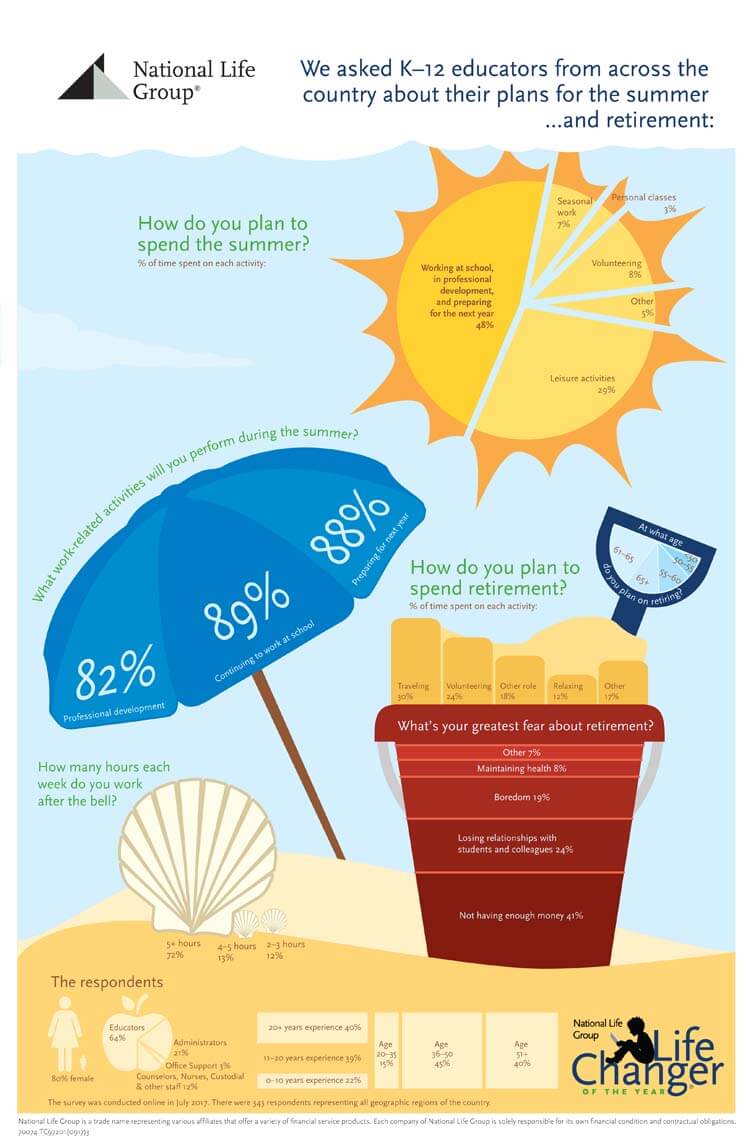Just like that, school is back in session. All across the country, you can hear shouts of glee from parents as they watch their children return to school. The break is over. It may have felt long for parents as they spent day after day trying to find ways to keep their children both busy and safe. But, I can assure you that for the 3.1 million educators here in the United States (or at least most of them), summer wasn’t long enough.
That’s because summer was not all fun and games. In fact, more than 80 percent of educators planned to dedicate a portion of their summer months to their job, according to LifeChanger of the Year’s annual summer survey.
Each summer, LifeChanger, National Life’s educator recognition program, surveys k-12 educators across the country to learn how they plan to spend their summers, what their school year looks like and what concerns they may have as educators.
From this year’s survey, we continue to learn that most spend summer “vacation” focused on their job.
It is a misconception to assume that teachers are not working at the school during the summer. Our survey revealed that 89 percent of respondents would continue to work at school during the summer break. Additionally, 88 percent expected to spend time preparing for the next school year and 82 percent planned to participate in professional development activities related to their current position.
K-12 educators aren’t just spending extra time during the summer on school and student related activities; it happens all year long. Seventy-two percent of educators say they invest more than five extra hours per week beyond the requirements of their job. Most do it for what they describe as “lightbulb” moments.
“I spend every weekend at school! I arrive to school two hours before students and many other teachers and stay after as well. I devote most of my extra time to my school not because I have to, but because I truly want to.”
LifeChanger’s summer survey also uncovered that the vast majority of respondents believe they will finish out their careers as teachers. Even after retirement, many will continue to work in education-related roles. And while respondents seemed optimistic to talk about retirement, there were some common fears around the topic. The biggest fear? Not having enough money.

TC97261(0917)1

